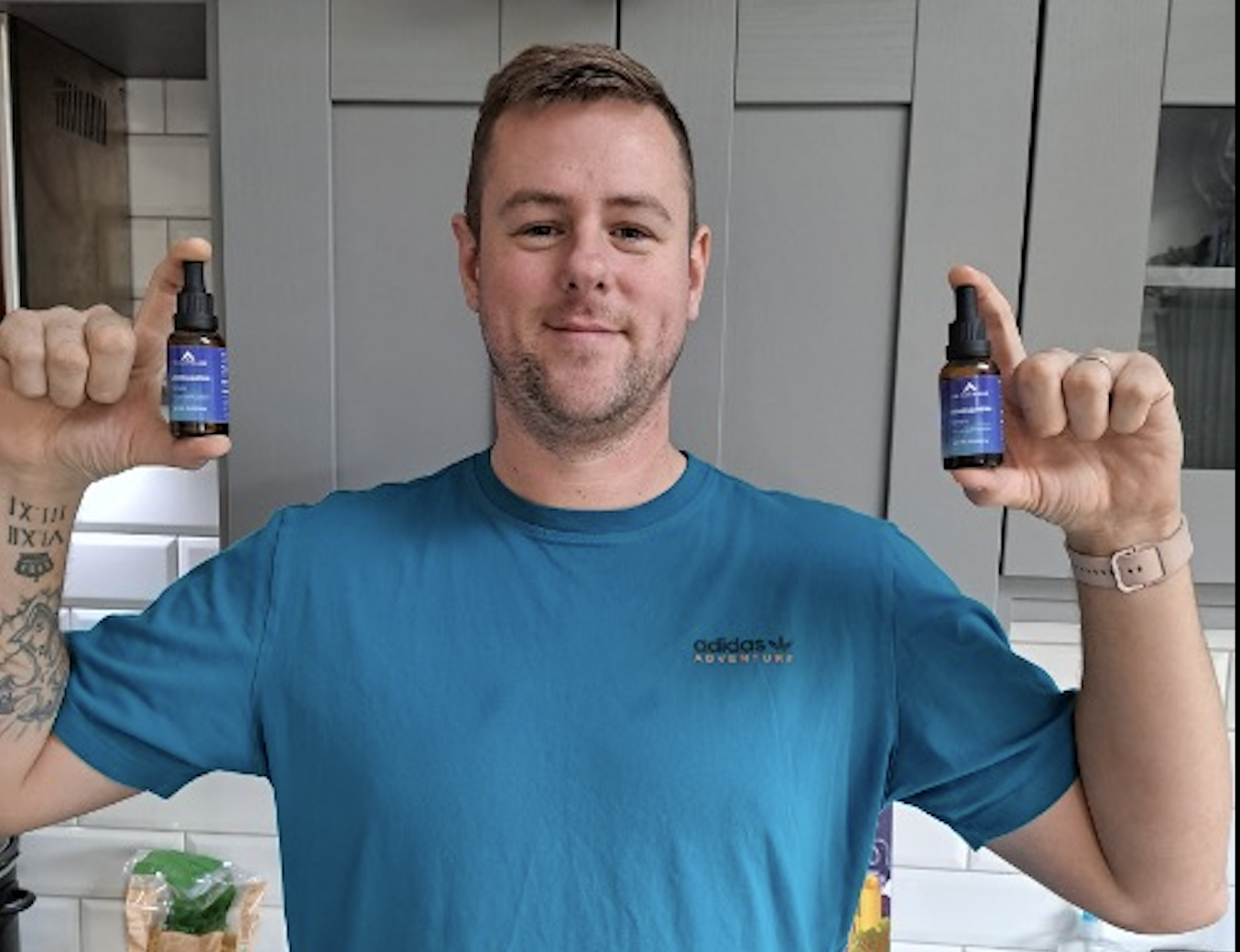Anxiety is more than just feeling nervous before a big event—it’s a reaction deep within our brains that can affect our thoughts, emotions, and even our bodies. Maybe you’ve felt your heart race when facing a scary situation or noticed your stomach twist into knots at the thought of a stressful meeting. These reactions happen for a reason, and understanding why they happen can be the first step toward managing them.
In this article, we’ll explore the science of anxiety—what’s going on inside your brain when you feel anxious and how these processes can become stuck in overdrive. We’ll also look at natural ways to find relief, including lifestyle changes and supportive options like CBD. By the end, you’ll have a clearer picture of what’s driving your worry and how to calm it.
Anxiety and the Fight-or-Flight Response
When we talk about anxiety, the term “fight-or-flight” often comes up. This response is your body’s way of protecting you from danger. Imagine you’re walking through the woods and suddenly spot a bear. In a split second, your brain and body spring into action. Your heart beats faster, sending more blood to your muscles. Your breath quickens to bring in more oxygen. You’re instantly ready to fight the bear or flee from it.
- Why This Matters: In modern life, we don’t often face bears in the woods. But our brains can still sense “danger” in everyday stresses—like a looming work deadline or an argument with a friend. The fight-or-flight response switches on whether there’s a bear or just a bad day at work.
- How It Feels: Racing heartbeat, sweaty palms, tense muscles, and a wave of worry or fear. It can also include feeling restless or having trouble focusing.
Key Takeaway: The fight-or-flight response is natural—and sometimes helpful. However, if it stays switched on too often, anxiety can become a constant companion.
The Parts of the Brain Behind Anxiety
Your brain is like a busy city, filled with specialized “neighborhoods” that each do different jobs. A few key areas are linked to anxiety:
- Amygdala:
- Often called the “fear center,” this almond-shaped part of your brain acts as an alarm system.
- It senses danger and sets off the body’s stress response.
- When the amygdala is hyperactive, you can feel on edge or tense even if you’re not in real danger.
- Hippocampus:
- Helps store and recall memories.
- If you have memories tied to fear or worry, the hippocampus can bring those feelings back when you face similar situations.
- Prefrontal Cortex (PFC):
- The front part of your brain that handles thinking, planning, and decision-making.
- Normally, it helps calm the amygdala by evaluating threats logically: “This isn’t a real bear, so let’s stay calm.”
- Under anxiety, the PFC can become less active, making it harder to think clearly and reassure yourself.
When these areas don’t communicate well, the fear signal can keep blasting without your “calm logic” stepping in. That’s when anxiety may spiral out of control.
Stress Hormones and Their Impact
When your brain detects a threat, it sends signals to the adrenal glands (which sit on top of your kidneys) to release stress hormones, mainly cortisol and adrenaline. These hormones speed up your heart, tense your muscles, and prime you to take action.
- Cortisol: This hormone helps your body handle stress by boosting blood sugar and energy. If cortisol levels stay high for too long—like during ongoing anxiety—it can wear down your health over time.
- Adrenaline: Known for giving you that burst of energy in an emergency. But constantly high adrenaline can lead to feeling jittery, restless, or exhausted.
Chronic Stress Effects:
If you’re anxious every day, your body keeps pumping out these hormones. This can impact your sleep, mood, and even your immune system. You might feel tired but unable to rest, or get sick more often.
How Anxiety Becomes Chronic
It’s one thing to feel anxious before an important exam or a big presentation. That’s normal. But when anxiety settles in as a daily reality, it can become chronic. Here’s how that can happen:
- Overactive Amygdala: The alarm system in your brain misfires too often.
- Negative Thought Cycles: You keep anticipating the worst and replay worries in your head.
- Learned Behavior: Repeated stress teaches your body to react quickly, even to small triggers.
- Lack of Coping Skills: Without healthy ways to handle stress, your brain doesn’t get the signal to calm down.
The result is a cycle of anxiety that can feel like a loop you can’t escape.
Physical Symptoms of Anxiety
Because anxiety isn’t just in your mind, you might notice:
- Tense Muscles: Causing headaches, neck pain, or soreness in your jaw.
- Upset Stomach: “Butterflies,” nausea, or digestive trouble.
- Sleep Problems: Trouble falling asleep or waking up feeling unrested.
- Rapid Breathing: Leading to dizziness or tingling in your fingers.
- Restlessness: Feeling like you can’t sit still or stop moving.
These symptoms can, in turn, increase your worry: “Why is my stomach so upset? Am I sick?” This creates a feedback loop that keeps anxiety going.
The Endocannabinoid System—Your Body’s Balancer
So where does the Endocannabinoid System (ECS) fit in all this? The ECS is a network in your body that helps keep many processes in balance—like mood, sleep, and stress responses. It produces its own “cannabinoids,” which are similar to compounds found in the hemp plant.
- CB1 Receptors: Found mostly in your brain. They play a big role in mood, memory, and how you process pain.
- CB2 Receptors: Spread throughout your immune system and elsewhere in the body.
When your ECS is out of balance, it might struggle to regulate things like fear or stress. That’s where natural products, such as CBD (a cannabinoid found in hemp), could potentially lend a helping hand.
Important Note: While research is still ongoing, many people find that supporting their ECS with CBD can help them feel calmer. This doesn’t mean CBD is a cure-all, but it may assist the body’s own balancing act.
Lifestyle Strategies to Calm Your Brain
Anxiety can feel overwhelming, but there are steps you can take to help calm your brain. Think of these as tools in a toolbox. You can try one at a time or mix a few together:
- Mindful Breathing:
- Simple but powerful. Close your eyes, inhale for 4 seconds, hold for 1 second, then exhale for 5 seconds.
- Focus on the air moving in and out of your lungs. This tells your body it’s safe to relax.
- Regular Exercise:
- Movement helps release “feel-good” chemicals like endorphins.
- Even a short walk can ease tension and improve your mood.
- Balanced Diet:
- Nutrients like omega-3 fatty acids (in fish, walnuts, or chia seeds) support brain health.
- Steady blood sugar levels can help prevent mood spikes.
- Adequate Sleep:
- Your brain cleans up stress chemicals when you rest.
- Aim for 7–9 hours of quality sleep each night.
- Limit Stimulants:
- Caffeine or energy drinks can supercharge your anxiety.
- Try cutting back to see if your nerves settle down.
- Relaxation Techniques:
- Yoga, meditation, or gentle stretching can help dial down your stress response.
- Doing these regularly can teach your brain a new, calmer baseline.
Could CBD Help?
For those looking for additional support, CBD has become a popular option. Here’s why some people with anxiety give it a try:
- Potential Calm: Studies suggest CBD may help reduce stress signals in the brain.
- Non-Intoxicating: CBD doesn’t make you feel “high.” The THC content in a full-spectrum CBD product is typically very low.
- Possible ECS Support: CBD may help the endocannabinoid system maintain balance, though the exact science is still being studied.
How to Incorporate CBD:
- Start Slow: Everyone’s body is different, so begin with a low dose and see how you feel.
- Morning Routine: Placing drops under your tongue first thing in the morning can set a calmer tone for the day.
- Evening Use: If anxiety keeps you up, some people prefer taking it before bedtime for a more restful night.
Remember: Always check with a healthcare professional if you’re taking medication or have specific health concerns.
Breaking the Anxiety Cycle
Because anxiety can become a pattern, it’s helpful to break the cycle:
- Identify Triggers: Notice which situations spark worry—like social events or certain places.
- Use Coping Skills: Have a plan in place—breathing exercises, journaling, or calling a supportive friend.
- Build Healthy Habits: Over time, daily routines (exercise, mindfulness, balanced diet) can reshape how your brain reacts to stress.
- Give Yourself Grace: Anxiety often ebbs and flows. Celebrate small victories and remember that setbacks aren’t failures.
When to Seek Professional Help
Sometimes, anxiety can grow so large that self-help strategies aren’t enough. If you find that:
- You feel overwhelmed most days
- You avoid daily activities because of worry
- You have trouble sleeping for long periods
- Your relationships are suffering
…it may be time to reach out for professional support. A trained therapist or counselor can help you learn new ways to cope, and in certain cases, medication may be helpful. There’s no shame in seeking help; it’s a courageous step toward feeling better.
Putting It All Together
Anxiety can be tough, but understanding the inner workings of your mind—and how the fight-or-flight response can get stuck—empowers you to make changes. Here’s a quick recap:
- Your Brain’s Alarm System: Amygdala, hippocampus, and prefrontal cortex play big roles in triggering or calming anxiety.
- Stress Hormones: Cortisol and adrenaline are good for short bursts but harmful if they stay high.
- Chronic Loop: When worry becomes an everyday habit, it can lead to muscle tension, sleepless nights, and more.
- The ECS: Your endocannabinoid system helps keep things in balance, and CBD may offer extra support.
- Lifestyle Tools: Mindful breathing, exercise, restful sleep, and a balanced diet form the foundation for calming anxiety.
- Know When to Get Help: If anxiety is overwhelming, seeking professional help can guide you back to wellness.
Conclusion: Finding Hope in Understanding
While anxiety might feel overpowering at times, remember that your brain isn’t broken—it’s responding the way it was designed to when it senses danger. By learning what’s happening under the surface, you can begin to change that response. Every calming breath you take, every healthy habit you build, and every moment you give yourself to rest is a step toward a more peaceful life.
Whether it’s daily mindfulness or exploring natural supplements like CBD, you have options. Keep in mind that real change takes patience, especially if anxiety has been part of your life for a long time. Give yourself credit for each small win and celebrate the progress you make.
Most importantly, you are not alone. Many people struggle with anxiety, and many also find ways to manage it—one choice, one habit, and one day at a time.




